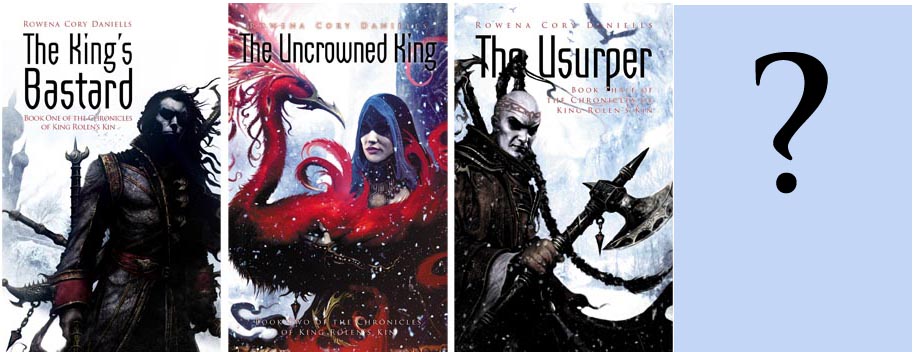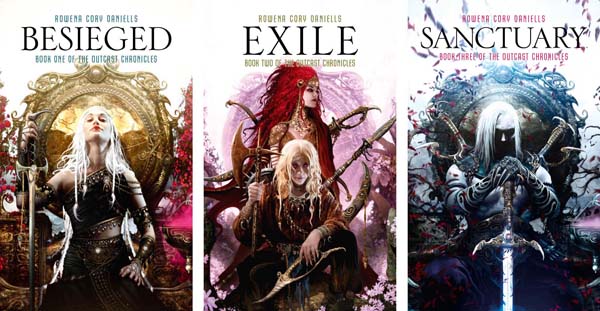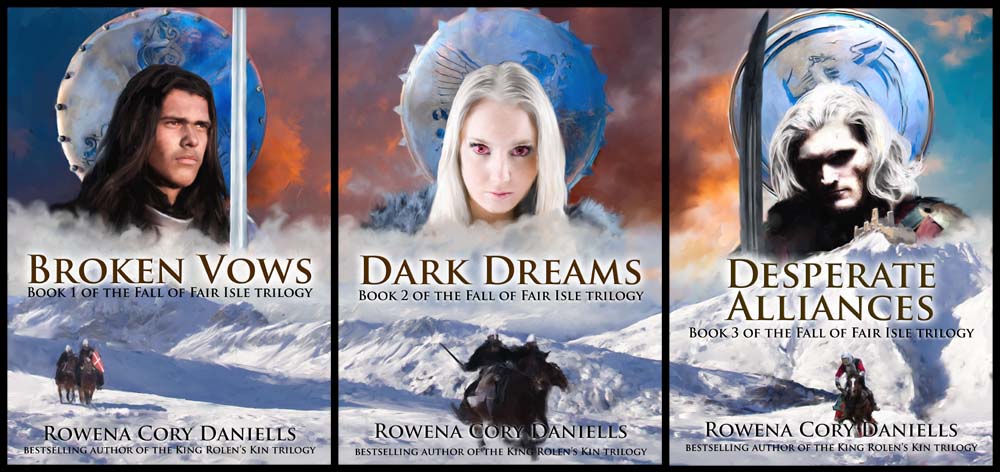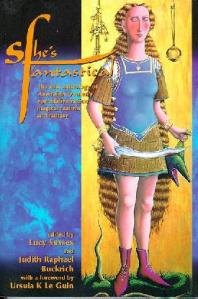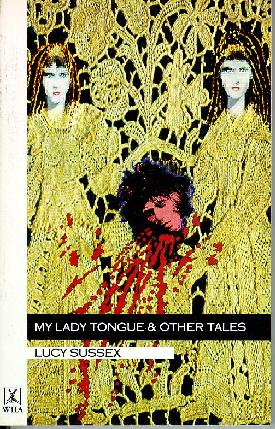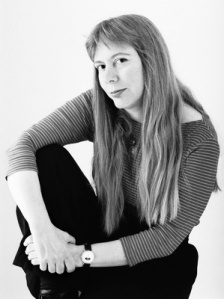Last week Cheryse Durant tagged me on her blog, as part of a chain of author recommendations called The Next Big Thing. Today it’s my turn to reciprocate and to pass on the torch. I’m going to answer questions about my new project King Rolen’s Kin Book Four . Then I’m going to tag some wonderful authors who will tell you about their Next Big Thing on Wednesday 12th of December. (Here are the other authors who are blogging today on their Next Big Thing: LJ Smith, Kallee Buchanan, Chris McMahon and Keren K)
PS. Regarding my Next Big Thing. I really had trouble deciding between the book that will be released tomorrow, The King’s Man and the book I’m currently writing. In the end I decided to talk about how writing The King’s Man influenced writing KRK4.
PPS. This blog post contains spoilers if you haven’t read the first KRK trilogy.
Q: What is the working title of your next book?
At this point Solaris Press want to call KRK4 King Breaker (or maybe King-breaker). I wanted to use words associated with kings and royalty, since this was the title theme of the King Rolen’s Kin trilogy.
Q: Where did the idea for the book come from?
I always knew there was going to be more KRK because when book three of the trilogy ended Byren had dealt with one of the Big Bads (as they’d say on Buffy) but the other villain still lived and sat on his father’s throne.
The problem was, I didn’t know how any of this was going to unfold. Then a friend* who had read KRK said to me, ‘Garzik can’t be dead. He just can’t.’ And I realised he wasn’t. And just like that I had the premise for The King’s Man ebook, released 6th December.
*The King’s Man is dedicated to: Leanne, who refused to believe that Garzik was dead.
Q: How did writing a book about Garzik help you write KRK4?
In the writing of The King’s Man I explored the larger world and having a richer world opened up more narrative possibilities. I am a voracious reader, which helps with world building.
I’ve always been fascinated by how societies evolve. What seems perfectly normal to us would be unthinkable to people at some other time, in some other place.
For instance, in Tibet they practice a much more varied form of marriage than we do. Two or more brothers* will marry one woman. All the children the woman has will be regarded as the children of the marriage. Because of the harsh conditions people need a certain amount of land to survive. If each of the brothers took a wife for themselves and had children, the family land would be broken up in the following generation and become non-viable. This would cause rivalry within the extended family. Their society evolved these customs over time to survive and it all seems perfectly normal to them because, for them, it is.
*This is a simple example. For more detail read Stratification, Polyandry, and Family Structure in Central Tibet by Melvin Goldstien.
Q: Speaking of world building, you explored a very differently structured society in The Outcast Chronicles and in KRK one of the central characters is gay. Were you worried that people would be offended? And why write about sexuality?
Some people were offended. There was one reviewer who said they refused to read KRK book one once they realized Orrade was gay. So far the reviews of OC have been positive, but I’m sure some people will find the way the mystics live in sisterhoods and brotherhoods confronting but just like the people of Tibet, the mystics’ society is logical for them.
And I write about sexuality (among other things) because I write about the human condition. I believe that fantasy can take a mirror and hold it to the world to make us question our assumptions.
Our world is a lot larger and more amazing than people realize, and I do my research. Things are never as simple as they first appear. For instance there are straight men go in search of gay sex* for various reasons. For one thing it is much easier than chatting up a woman, as there are no complications since both parties know what they want. For another, some men rationalize it as not cheating on their wife or girlfriend.
Sexuality and the search for love is one of our primal drives. If I avoided it, I would not be writing honestly. I would be skimming over the surface and the act of writing would feel unsatisfying for me. Besides, sometimes it is good for us to be confronted.
*For more information on this see Dr Joe Kort’s articles here.
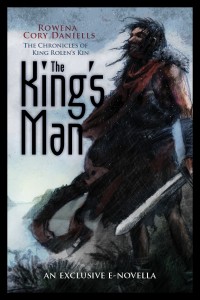 Q: There are some confronting things in The King’s Man. How has this book been received?
Q: There are some confronting things in The King’s Man. How has this book been received?
The book will be officially released tomorrow but the first review is already up. I have a beta reader in one of my adult sons. He is a keen fantasy reader and he’s my target audience. If he doesn’t understand something or he wants to know more about it, I will elaborate. He reads most of my books before I send them to my publisher.
Q: After all that serious stuff, here’s a fun question. If you found yourself in a lift with a movie director you admire and had the chance to pitch your book to them, what would you say and who would that director be?
I’d say: I write rollicking fantasy that keeps readers up all night. But underneath all that adventure and fun King Breaker is about the price we are willing to pay to achieve our ambition and asks is it worth it?
And my dream director would be Allan Ball because of his wicked sense of humour in True Blood and Six Feet Under, or Peter Jackson because he is a consummate story teller, or Guillermo de Toro because of his lyrical vision in Pan’s Labyrinth.
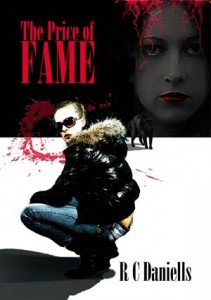 Q: It’s been a busy year for you with four books coming out. How do you find the time to write?
Q: It’s been a busy year for you with four books coming out. How do you find the time to write?
Actually, it’s been five books this year – The Outcast Chronicles trilogy and The King’s Man, (both fantasy) and my paranormal crime, The Price of Fame. Plus I’ve been cleaning up my original trilogy, (new title The Fall of Fair Isle) to re-release it some time next year. (When I get the chance).
I’m an Associate Lecturer, we’ve been madly renovating, we have six children (the last one just finished high school) so it has been a really hectic couple of years. But the thing that keeps me sane is writing. This is what fascinates me, exploring worlds via character. If you took this person and put them in this situation what would they do? What would they learn about themselves? That is the core of why I write.
Q: When will we see King Breaker? And what will be your Next Big Thing?
I’ll hand the book into Solaris in May and it is scheduled for release late in 2013.
As to my Next Big Thing… there have been a lot of comments on my blog asking for more Outcast Chronicles and I find this series compulsive, so I will probably dive back into the OC.
And here are the authors I’d like to introduce. They will be blogging next Wednesday (12th December), when they talk about their Next Big Thing:
 Lee Battersby, author of The Corpse-Rat King and its sequel Marching Dead, lives in Western Australia. He has had over 70 short stories published and won numerous awards.
Lee Battersby, author of The Corpse-Rat King and its sequel Marching Dead, lives in Western Australia. He has had over 70 short stories published and won numerous awards.
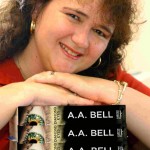 AA Bell, author of the Diamond Eyes trilogy of SF & Fantasy thrillers. Twice winner of the prestigious Hemming Award for Excellence… Website and blog.
AA Bell, author of the Diamond Eyes trilogy of SF & Fantasy thrillers. Twice winner of the prestigious Hemming Award for Excellence… Website and blog.
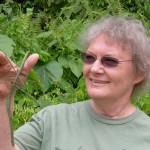 Glenda Larke is an Australian living in Malaysia, an rainforest environmentalist who has worked in avifaunal conservation. She’s also author of three fantasy trilogies and a standalone fantasy novel, seven of which have been shortlisted for the Aurealis Best Fantasy Novel of the Year.
Glenda Larke is an Australian living in Malaysia, an rainforest environmentalist who has worked in avifaunal conservation. She’s also author of three fantasy trilogies and a standalone fantasy novel, seven of which have been shortlisted for the Aurealis Best Fantasy Novel of the Year.
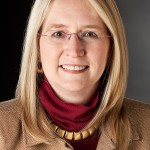 Gail Z. Martin is the author of Ice Forged in her new The Ascendant Kingdoms Saga (Orbit Books), plus The Chronicles of The Necromancer series (The Summoner, The Blood King, Dark Haven & Dark Lady’s Chosen ) and The Fallen Kings Cycle (The Sworn and The Dread). Gail blogs at www.DisquietingVisions.com, and her web site in www.AscendantKingdoms.com.
Gail Z. Martin is the author of Ice Forged in her new The Ascendant Kingdoms Saga (Orbit Books), plus The Chronicles of The Necromancer series (The Summoner, The Blood King, Dark Haven & Dark Lady’s Chosen ) and The Fallen Kings Cycle (The Sworn and The Dread). Gail blogs at www.DisquietingVisions.com, and her web site in www.AscendantKingdoms.com.

